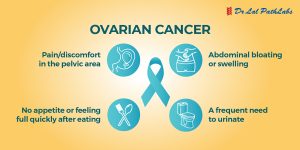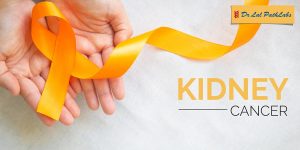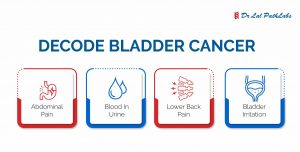Lymphoma and Nutrition: Dietary Tips for a Better Health

Lymphoma is a term for cancer of the lymphatic system. While medications are important in treating this condition, diet and nutrition also play a role. This article delves into lymphoma, its symptoms and causes, and how food and diet can affect those with this condition.
What is Lymphoma?
Lymphoma is a type of cancer that starts in lymphatic system cells. The lymphatic system consists of the tissues, organs, and vessels that help the body fight infection. It is considered a type of blood cancer since it often starts in the lymphatic system’s white blood cells (lymphocytes).
While there are more than 70 subtypes, lymphoma cancer is usually grouped into two types: Hodgkin lymphoma and non-Hodgkin lymphoma (NHL).
What Causes Lymphoma?
The mutation of white blood cells into rapidly growing cancer cells causes lymphoma. These mutations do not always have an identifiable cause. However, the following conditions could be risk factors:
1. Viral Infections
Prior or current infection by viruses like HIV, Epstein-Barr (mononucleosis), and Kaposi sarcoma human immunodeficiency virus can predispose individuals to lymphoma. The genome for mononucleosis has been observed in about 20-80% of Hodgkin’s lymphoma tumours.
2. Genetic Factors
Hodgkin’s lymphoma has been observed in families with identical twins or same-sex siblings. Children are also more likely to get it if one of their parents has it.
3. Weakened Immune Systems
Individuals with prior conditions or treatments that weaken the immune system are more likely to develop lymphoma. These include those who take immunosuppressants for medical reasons or who have an autoimmune disease.
What are the Symptoms of Lymphoma?
Some common symptoms of lymphoma include:
- Swelling of lymph nodes in the armpits, groin, or neck
- Itching
- Loss of appetite
- Unexplained weight loss, with a loss of more than 10% of the individual’s total body weight
- Prolonged fever above 39.5 degrees Celcius and chills
- Excessive sweating at night, which causes drenching of the sheets or clothes
- Increased sensitivity to alcohol
- Persistent fatigue
- Dyspnea, or shortness of breath
How Does Diet Affect Lymphoma
Lymphoma and nutrition go hand in hand regarding management and prevention. While diet alone cannot treat lymphoma, consuming sufficient nutrition can help manage side effects related to treatment and medication.
Treatments for lymphoma often involve medications, chemotherapy, radiation, and other therapies. These often have adverse side effects like loss of energy, malnutrition, muscle weakness, nausea, mouth sores, loss of appetite and changes in taste. A proper diet for lymphoma patients helps maintain muscle mass, energy, and weight.
A lymphoma diet should include high-calorie, nutritious foods like:
- Eggs
- Seeds and nuts, including nut butter
- Full-fat dairy products like whole milk
- Whole grains
- Fresh vegetables and fruits for nutrients
A healthy diet for lymphoma patients should also include foods the individual likes. Since lymphoma changes how patients taste foods, looking for well-liked foods can help individuals eat more. It is best to consult with a nutritionist or medical professional for guidance when choosing a diet for lymphoma.
Eating smaller, frequent meals or snacks throughout the day can also help during treatment. It is also important to stay hydrated with water and non-sugar drinks. This helps to avoid bloating and digestive issues.
Does Diet Contribute to Lymphoma?
Certain foods have been linked to a greater risk of lymphoma. These include animal fats (like butter or processed meats), added sugars, white, refined grains, alcohol, caffeinated beverages, and diet sodas.
Studies have also found that a Mediterranean diet rich in anti-inflammatory foods can help prevent non-Hodgkin lymphomas. It may also help prevent other cancers and even certain heart conditions. This includes fresh fruits, vegetables, legumes, nuts and seeds, whole grains, starchy vegetables, extra virgin oil, fish, and eggs.
How Is Lymphoma Diagnosed?
A medical professional may look for symptoms like swelling of the lymph nodes, persistent and unintentional weight loss, and other symptoms. They might also order the following tests for further examination.
1. Blood Tests
Blood tests may look for viruses linked to Hodgkin’s lymphoma and other indicators. They also give an overview of an individual’s overall health. Some blood tests could include a complete blood count, blood chemistry study, or erythrocyte sedimentation rate.
2. Imaging Tests
Imaging tests, such as CT, PET, MRI, or ultrasounds, are often used to diagnose lymphoma.
3. Other Tests
Other tests include a lymph node biopsy, in which a small amount of tissue is removed from the lymph node and examined for signs of Reed-Sternberg cells. Biopsies may also be conducted from lung, liver, bone marrow, or spleen tissue.
Tests for hepatitis B, hepatitis C, or HIV (Human immunodeficiency virus) may also be conducted to plan for Hodgkin’s lymphoma treatment.
If an individual has symptoms of lymphoma, it is important to contact a healthcare professional for further guidance. Book a lymphoma test with Dr Lal PathLabs today for an easy and accurate lymphoma diagnosis.
FAQs
1. How does diet affect lymphoma?
Studies have found a link between a higher risk of lymphoma and foods like refined grains, processed sugars, animal fats, and alcohol. A Mediterranean diet is best to prevent the risk of lymphoma.














